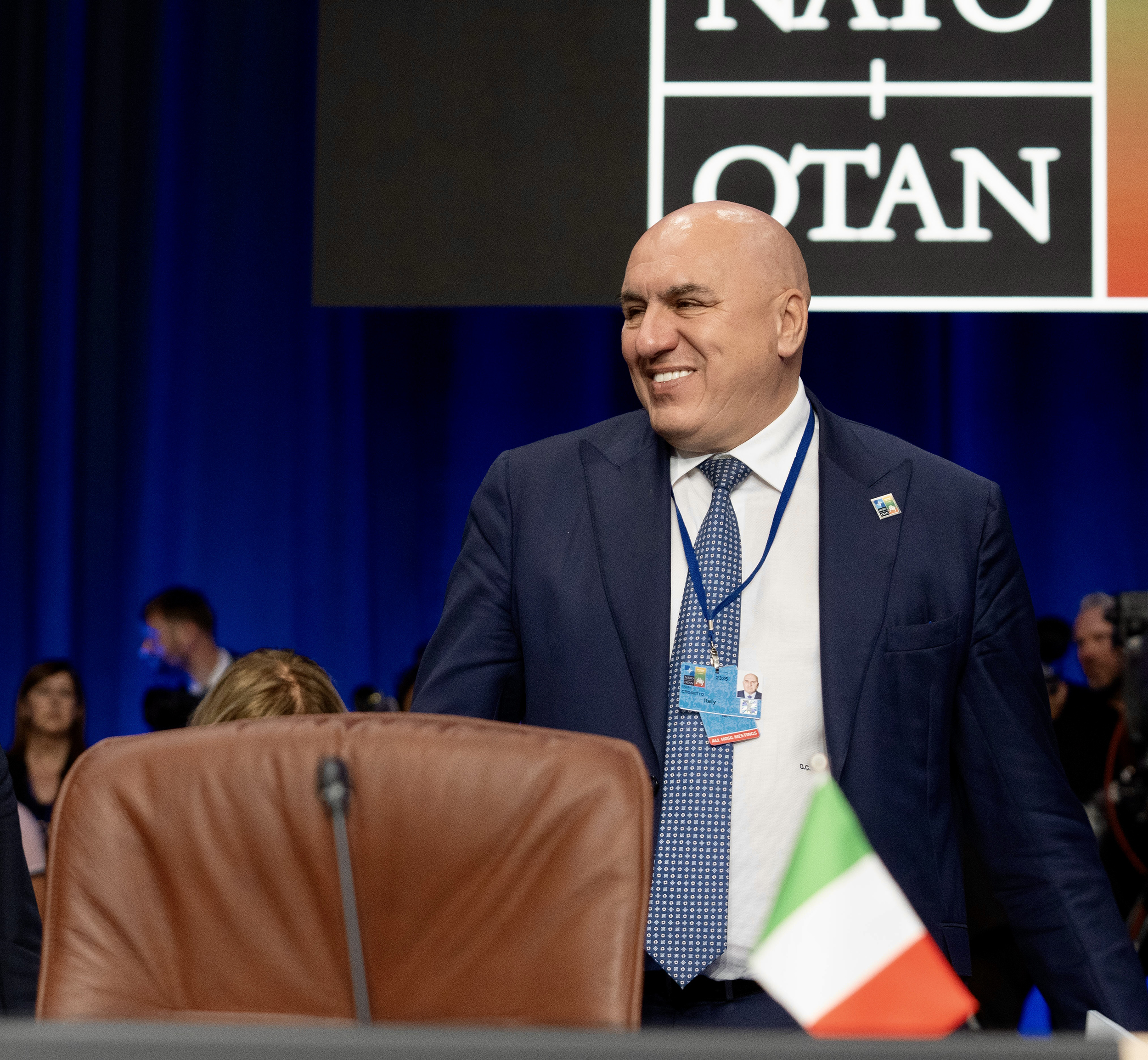Why Italy will not train Ukrainian pilots on F-16s

What emerged from the hearing of the Defense Minister, Guido Crosetto, before the joint Foreign Affairs and Defense commissions of the Chamber and Senate on the outcome of the NATO summit held in Vilnius on 11 and 12 July
"Italy has not made any commitments to train Ukrainian pilots".
This was confirmed by the Minister of Defense, Guido Crosetto, in a hearing before the joint Foreign Affairs and Defense commissions of the Chamber and Senate on the outcome of the NATO summit held in Vilnius on 11 and 12 July 2023, in particular by answering the question on a possible hypothesis of training Ukrainian pilots in our country.
At the NATO summit in the Lithuanian capital in mid-July, the coalition of 11 European countries, led by Denmark and the Netherlands, formally agreed to train Ukrainians to fly F-16s and potentially other fighter planes. Meanwhile, the Biden administration has authorized training of Ukrainian pilots in Europe in the use of US-made fighter-bombers, a green light necessary for the training to begin.
But Italy was not counted among the member countries of this coalition.
In fact, the defense chief explained that “we don't have F-16s and we don't intend to buy them to train anyone. Up until now, Italy has contributed considerably to the Ukrainian defense, this is not one of the ways in which we will contribute”.
Then Minister Crosetto addressed the issue of the NATO objective of 2% Defense-GDP ("Italy is behind"), attention to the southern flank ("important result for Italy") and the exclusion of defense expenditure from the Stability Pact.
All the details.
AFFIRMATION OF THE POSTURE IN THE SOUTH SIDE LIKE THE EAST SIDE RESULT OF ITALY
“The Vilnius summit was an important and strategic summit for NATO for Ukraine's accession prospects and the positive opinion given to Sweden's future entry” began the defense minister, Guido Crosetto, during the hearing. Furthermore, the participation of "the Indo-Pacific partners" is important, Crosetto specified.
At the same time "the affirmation of a posture capable of intervening on the southern flank on a par with what happens on the eastern flank is an important result for Italy" highlighted the defender. An important result for Italy "given the position of the countries on the eastern flank", reiterated the minister.
NATO AND THE COMMITMENT OF 2% DEFENSE EXPENDITURE/GDP
Turning to investments in the military sector, "Italy has managed to prevent the request of many NATO allies to make the expenditure of 2% of GDP compulsory" Minister Guido Crosetto pointed out.
"The final communiqué speaks of a commitment to spend 2%, without time obligations", Crosetto specified, underlining that he was "the only minister who questioned the possibility of our country reaching 2%" adding that "For the first time this government has clarified the possibility of giving our contribution".
The minister explained to the commissions gathered for the hearing on the outcome of the summit of the Atlantic Alliance in Vilnius that "NATO has invited the allies to invest at least 2% of the ratio between defense expenditure and GDP, as this parameter will be considered in the future as a starting point for the renewed needs of the Alliance. In some cases it will be important to spend even more than 2%, considering the previous years of under-investments".
THE POSITION OF OUR COUNTRY
In this regard, Crosetto illustrated that this year the 2% target "will be achieved by eleven countries to which another eight will be added in 2024" and others in the following years.
"At the moment, our national plans foresee that Italy will settle at 1.46% in 2023 and then fall to 1.43% in 2024: a negative trend and as can be seen we are very far from 2%" the Defense Minister made clear, specifying that "In a hypothetical ranking, Italy is a candidate for 24th place for defense spending".
“2% is a goal that we continue to disregard. It is fair to ask if we need it, but Parliament decides 2% by approving the budget allocations, which are a political choice, entrusted to the parliamentary passage. Then each of us will be able to reflect on whether or not we need an Atlantic alliance. To date, the state of affairs tells us that Italy cannot achieve it next year or even the following one. It is difficult to identify a date. I hope, because I think there is a need, that we will be able to respect the pact because otherwise we would end up being the last country to invest in this sense” reiterated Crosetto.
NEED TO EXCLUDE DEFENSE EXPENDITURE FROM THE STABILITY PACT
In light of our country's difficulties in reaching the commitment to allocate 2% of GDP to defense expenditure, Minister Crosetto recalled a question already raised at the beginning of the year in Europe : the exclusion of defense investments from the Stability Pact.
"My proposal to unbundle military expenditure from the Stability Pact was born because the only way not to remove resources to be allocated to social interventions is precisely to exclude expenditure from budgetary constraints" explained the Minister of Defense, Guido Crosetto, in a parliamentary hearing already at the beginning of the year .
“Removing defense from the constraint of the expenditure envisaged in the EU Stability Pact does not take away money but would allow it to be invested in specific sectors” reiterated Minister Crosetto again.
This is a machine translation from Italian language of a post published on Start Magazine at the URL https://www.startmag.it/smartcity/perche-italia-non-addestrera-i-piloti-ucraini-su-f-16/ on Sun, 23 Jul 2023 15:01:58 +0000.
